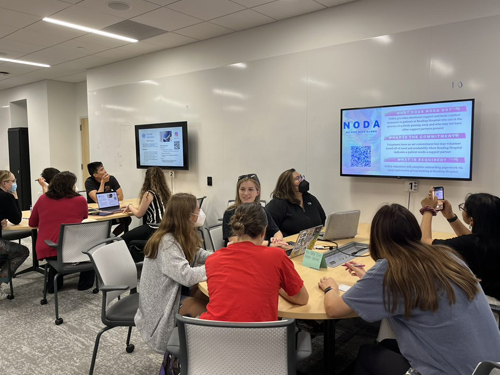Health Outreach Project Looks Back on First Year at West Reading Campus
December 14, 2022
By Lisa Ryan
While the Health Outreach Project (HOP) has been part of the Drexel University College of Medicine’s culture for more than 25 years, the community outreach programming only expanded to Berks County, Pennsylvania in 2021, when Drexel University College of Medicine at Tower Health opened in West Reading. HOP faculty advisor Eugene York, MD, is impressed with the work students have done to grow HOP programming around the campus.
“It has been amazing, in a little over a year, to see what they have started and what they've accomplished so far,” York said.
Through the HOP clinics in Philadelphia and West Reading, MD Program students work as physician-supervised health advocates in student-run free clinics and local health service providers throughout the city. HOP volunteers also hold health fairs for members of underserved communities, and work with organizations that improve community well-being.
Students from the West Reading campus are engaged in patient care activities with three local clinics and participate in projects related to street medicine for people experiencing homelessness, LGBTQ+ health and the health of the local Hispanic and Latinx community. The students have initiated a lifesaving Narcan distribution program, are initiating a vaccine education and distribution program, and are teaming with volunteer services at Reading Hospital in the No One Dies Alone (NODA) program.
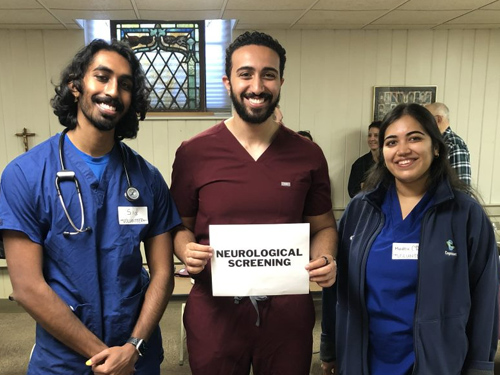
York said he was especially excited to see the students take the initiative to create sub-clinics within the Hope Rescue Mission where they serve. Now, people experiencing homelessness can not only receive basic primary care from a physician who is in-person at the clinic, but can also take advantage of telehealth visits, in which students take patients’ vital signs and perform basic examinations for a doctor who has called in virtually.
Additionally, the students have created eye health and respiratory sub-clinics through Hope Rescue Mission and are working to add other specialties in the new year. York said these sub-clinics give people experiencing homelessness the resources to manage aspects of their health that may be inaccessible to them or are not front-of-mind since they are concerned about food, shelter and other basic needs.
“The eye screening has been able to diagnose eye problems that could have led to blindness, and we have been able to get almost everyone who we have seen into formal eye care,” York said. “The respiratory sub-clinic has been very good at screening individuals at high risk for lung cancer, as well as diagnosing individuals with sleep apnea and providing them equipment to treat it that they otherwise would not have.”
In their health outreach work, medical students gain first-hand patient care experience and deepen their understanding of the social determinants of health, and become more compassionate, patient-centered thinkers.
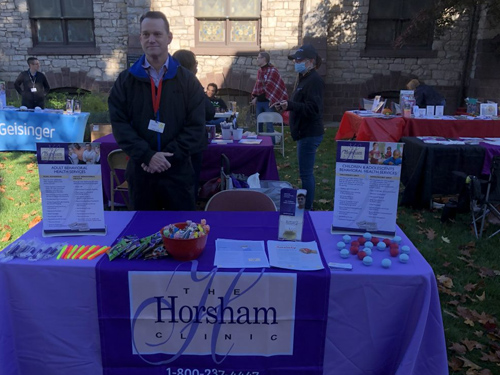
Across projects, students have seen a remarkable response from the community, according to York.
“Not only have the students benefited from their work with HOP, but I think the community has also benefited,” York said. “The community has been really receptive to what the students have been doing. The response of the community has been fantastic in so many ways.”
Earlier this fall, students partnered with the Hispanic Center of Reading and Berks County to hold a health fair for the region’s Hispanic and Latinx community. Over 100 community members attended the event, where they were able to receive eye screenings, blood pressure screenings, diabetes education, connections to locally-available primary care and more.
York said community organizations have been enthusiastic about partnering with students, who create most HOP partnerships themselves and manage the projects throughout the year. The Berks County Community Foundation provided support.
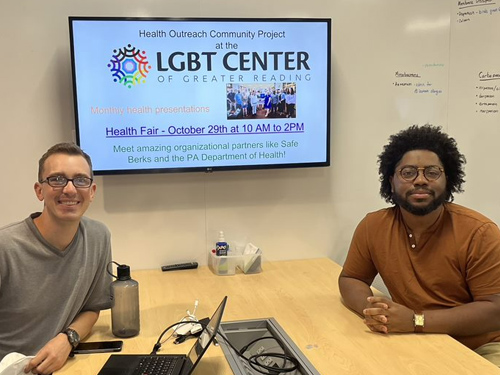
Support for Berks County-based HOP efforts has also come from within the College of Medicine at Tower Health, according to York. He credited Regional Vice Dean Karen Restifo, MD, JD, as well as HOP Coordinator Sammy Brink, Academic Coordinator Andrea Bensusan, along with HOP’s student leaders, various steering coordinators, and Co-chairs Danielle Mayblum and David Tallerico, both from the MD Program Class of 2025.
“In addition to the really difficult medical school curriculum, these students have volunteered and carved out time to lead the projects,” York said. “They have spent so much time. I don't know how they do it.”
The West Reading-based medical students collaborate with their peers on the Queen Lane campus, from running HOP meetings together to assisting at each other’s community health fairs. York said the West Reading Narcan program dovetailed from a similar project in Philadelphia.
“There is a lot of collaboration between students, administrators and faculty,” York said.
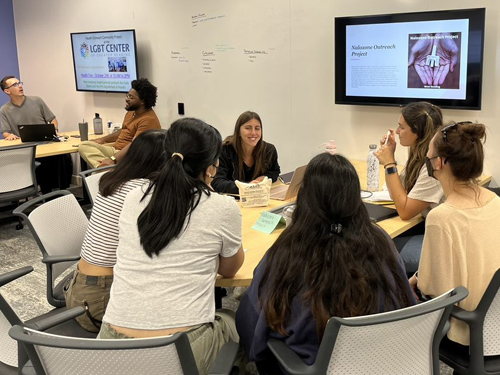
York said he has already seen the empathy and passion for service of the MD Program students he meets through HOP.
“They are hardworking, they're polite, they're intelligent, but they also are really focused on helping others. To see that is amazing,” York said. “Going forward, HOP may expand, it may change, but I hope student programs continue to fill whatever needs they can in the community.”
